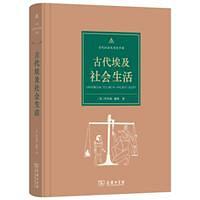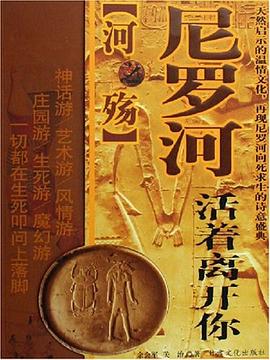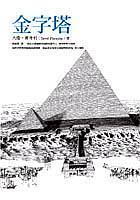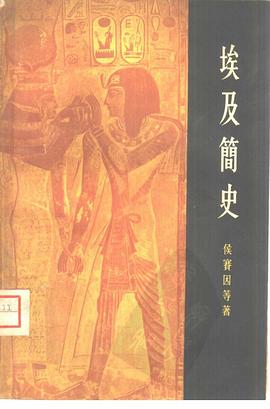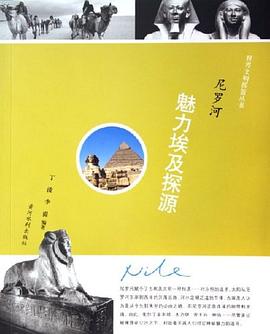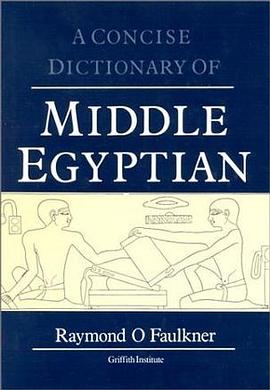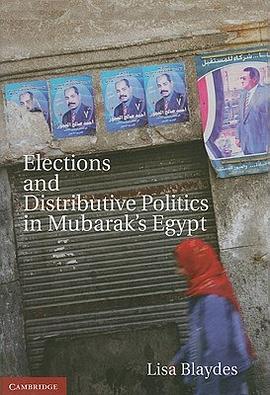

Review
"Dr. Blaydes seeks to answer the question, 'Why do authoritarian rulers like Egypt's Hosni Mubarak, hold elections?' Her research examines how the regime in Egypt sustains its undemocratic rule with elections. She argues that elections represent a Pareto improvement for all relevant actors in Egyptian politics - the regime, citizens, and the political elite, including rent-seeking political entrepreneurs, ideological opposition and the military as well as external actors. This book is likely to shift the dominant Egyptian paradigm from a lingering fascination with the cultural structuring of social movements toward a reconsideration of political rationality in unexpected places."
-Leonard Binder, University of California, Los Angeles
"Political scientists are finally returning sustained and rigorous attention to the ways that authoritarian regimes of various stripes operate. As they do so, they will find Lisa Blaydes's Elections and Distributive Politics in Mubarak's Egypt singularly useful. Blaydes deftly employs Egypt's electoral system as an avenue for understanding how the regime operates, how citizens (both rich and poor) experience the political system and act politically, and how real and potential opposition act in the constricted channels provided. Elections in authoritarian systems are not anomalous; they have become the norm. Blaydes helps us understand how balloting fits into authoritarian politics."
-Nathan J. Brown, The George Washington University
"Blaydes explores the mechanisms by which competitive parliamentary elections help sustain authoritarianism in contemporary Egypt. Competitive elections perform multiple functions, from managing distributional conflict among the elite to mapping the spatial distribution of regime supporters. Blaydes moves fluidly from the perspective of the regime and the rent-seeking elite to that of citizens, both supporters and regime opponents, carefully weighing the costs and benefits of participating in elections to a powerless parliament. Elections and Distributive Politics combines thematic breadth, insightful analysis, and methodological rigor; all students of authoritarian dynamics will find valuable lessons in this important book."
-David Waldner, University of Virginia
"A wonderfully incisive analysis based on new data and judicious personal observation, this is the first comprehensive answer to the puzzle of why the Egyptian regime spends so much effort on the organization of elections without choices. Blaydes makes an expert contribution to the study of the political behavior of authoritarian regimes. If you read one book on contemporary Egyptian politics, read this."
-Roger Owen, Harvard University
Book Description
Although it would seem that elections matter little in authoritarian countries, elections are not only common in authoritarian regimes but also very useful for the dictator in efforts to keep power. This book examines the significance of elections in authoritarian Egypt.
具體描述
讀後感
用戶評價
教科書式的一部比較政治、國彆政治的著作,揭示瞭威權政體下的選舉不僅具有已被大量研究證實的提供閤法性的功能,同時通過對租金的可信分配以及為統治者提供信息,起到瞭鞏固威權統治的重要功能。競爭性議會選舉在埃及等威權國傢中,代錶著麵對一係列政治挑戰的威權政權的理性甚至是最佳反應。作者在結論部分也談到瞭利用競爭性選舉而創造齣的這一威權政體的均衡在一定條件下有可能被打破,戲劇性的是,就在本書齣版不到一年,穆巴拉剋的政權真的就在阿拉伯之春的浪潮中被推翻。
评分與Magaloni對墨西哥PRI的研究相似,本書為選舉式威權研究的又一範例,其研究對象是穆巴拉剋治下的埃及。作者認為,威權國傢選舉的作用(功能)在於兩方麵,一是可信地分配租金;二是為統治者提供信息。這種選舉跟民主化(的意圖)沒有關係,隻是專製者的理性選擇。
评分1-3,5-6,12; 已經被兩位大佬推薦瞭,確實是很有格局的比較政治著作,也不知道除瞭Magaloni以外還有什麼Redistribution under Authoritarianism的研究
评分與Magaloni對墨西哥PRI的研究相似,本書為選舉式威權研究的又一範例,其研究對象是穆巴拉剋治下的埃及。作者認為,威權國傢選舉的作用(功能)在於兩方麵,一是可信地分配租金;二是為統治者提供信息。這種選舉跟民主化(的意圖)沒有關係,隻是專製者的理性選擇。
评分與Magaloni對墨西哥PRI的研究相似,本書為選舉式威權研究的又一範例,其研究對象是穆巴拉剋治下的埃及。作者認為,威權國傢選舉的作用(功能)在於兩方麵,一是可信地分配租金;二是為統治者提供信息。這種選舉跟民主化(的意圖)沒有關係,隻是專製者的理性選擇。
相關圖書
本站所有內容均為互聯網搜索引擎提供的公開搜索信息,本站不存儲任何數據與內容,任何內容與數據均與本站無關,如有需要請聯繫相關搜索引擎包括但不限於百度,google,bing,sogou 等
© 2025 onlinetoolsland.com All Rights Reserved. 本本书屋 版权所有



